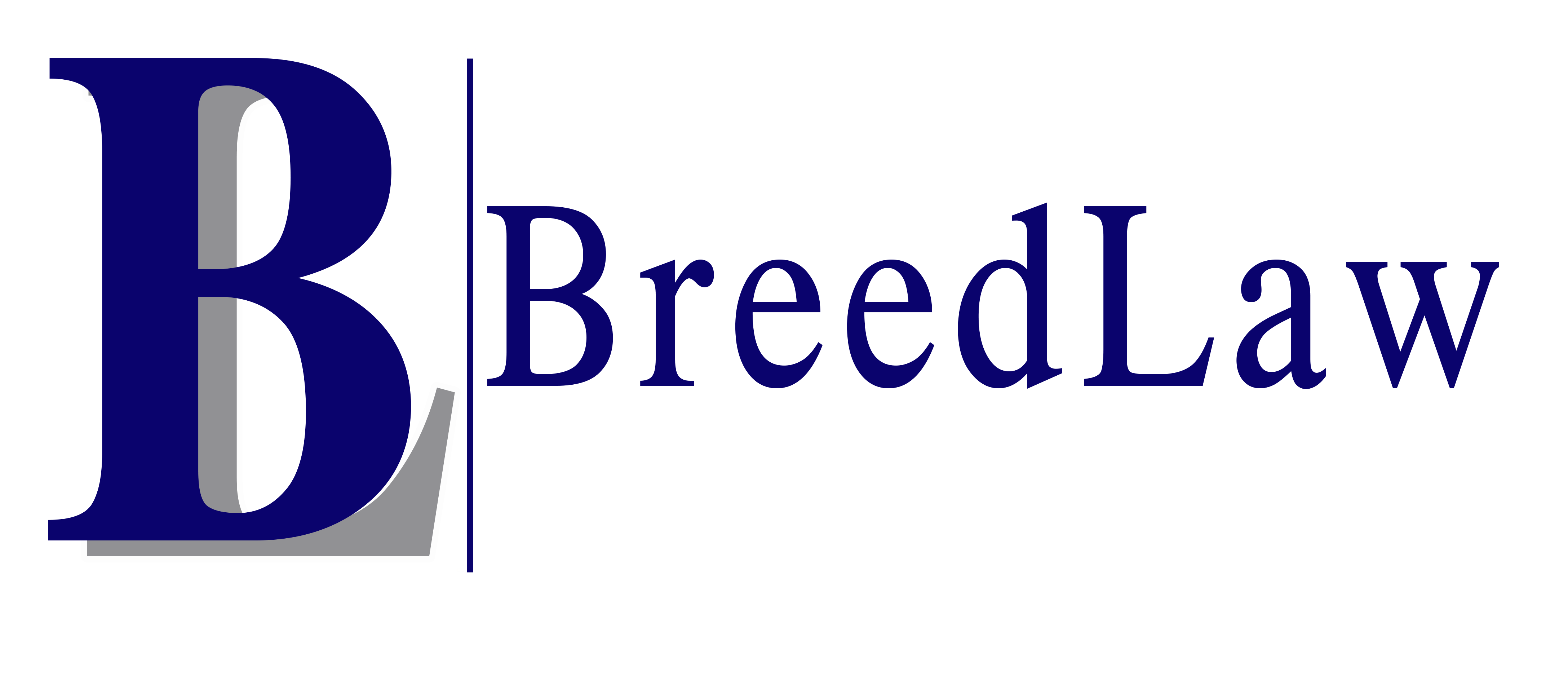BREED LAWEstate Administration and Probate
The loss of a loved one is a painful and emotionally draining experience. The last thing a person tasked with settling the estate needs is the added stress or headaches associated with going through the court system and dividing up their loved one’s property. Having handled hundreds of difficult and challenging estate matters, we understand the process and strive to make it as simple and care-free as possible. You can rest assured that while you are grieving and healing, we are working to settle the estate and carry out your loved one’s last wishes in an expeditious and cost-effective manner.
What is Estate Administration?
When a person passes away, he or she leaves behind an estate which needs to be administered. If that person died leaving a will, the estate will go through probate – which means the will must be filed with the appropriate local court and proven to be the valid last wishes of that person. If there is no will, or if it cannot be found nor proven to be valid, an application to the appropriate local court is still necessary, but the estate administration would be subject to a different set of laws, called intestancy.
Once a will is accepted, the person named in the will to carry out the terms of the will (executor) is formally appointed by the court and can then go about notifying the beneficiaries of the estate, notifying creditors, collecting assets and otherwise preparing the estate for disbursement per the terms of the will. The process is somewhat different for intestancy proceedings. As there is no valid will, no one is named executor and instead the court must appoint someone (administrator). Often times this person is the surviving spouse or a child, but can also be other relatives and even non-related interested third parties. Regardless of whether a will exists, the person appointed to represent the estate must notify beneficiaries and creditors in a timely manner and abide by court and tax authority-mandated deadlines. Understanding that the procedures vary from State-to-State, below is a general snapshot of the process from start to end:
- Submit the will to the local court of the county in which the person passed away, or apply to be named administrator of the estate;
- Receive a court-issued document to act as the representative of the estate;
- Publish notice of the person’s passing in a local newspaper(s) in order to notify creditors;
- Contact all named beneficiaries;
- Obtain an inventory of all assets and debts and begin collecting the assets of the estate;
- Coordinate the filing of a final income tax return as well as any estate, inheritance or gift tax return(s) (if applicable);
- Distribute all remaining assets of the estate/transfer title to heirs after payment of final debts, taxes and expenses;
- Prepare estate financial reports, court accountings and closing documents;
- Apply to the court to close out the estate.
The timeline for administering an estate varies, often depending on its complexities and whether any disputes arise among beneficiaries or creditors. Sometimes the representative of an estate can utilize a small estate proceeding which simplifies the process and reduces the costs. Whether this is possible depends on that State’s laws and often focuses on the amount of funds in an estate and/or whether the person died owning real estate.
In all, administering an estate does not need to be a daunting task, and, as long as done properly, it can be a very streamlined process. Though, we understand that this still may be the last thing in the world someone wants to deal with. If you are the representative of an estate or think you may soon need to act in such capacity, please feel free to contact us to arrange a free consultation. We have offices in mid-town Manhattan and Wayne, PA and will make every effort to accommodate your needs.
A: This is the highest standard of care a person can owe. The person acting as a fiduciary, whether the executor of a Will or trustee of a trust, owes a special strict legal duty to the principal (creator of the Will or trust) and all beneficiaries.
A: If your original Will cannot be found after you die, there is a legal presumption that the original Will was destroyed or revoked. Thus, when admitting a copy, the petitioner needs to submit an affidavit affirming: an original Will existed, its contents were similar or the same as to the copy of the Will and the original had not been revoked or destroyed.
A: Ordinarily, between 7 months and one year. Creditors have 7 months from the date of death to file a claim, so you want to at least wait until that deadline passes before finalizing calculations, filing any estate tax returns which may be due and making final distributions to beneficiaries.
A: Probably. The main reason is you can preserve any unused exemption of the first spouse’s estate tax (currently $11.4 million), thus increasing the eventual exemption of the second spouse’s estate. Another reason is to lock in the date of death value for property passing to the second spouse, thereby having a record to refer to and making life easier for the ultimate beneficiaries.
A: No, so long as you file a “qualified disclaimer” with the IRS within 9 months of the date of death. This acts as a formal renunciation and the property goes to the next-named beneficiary.
